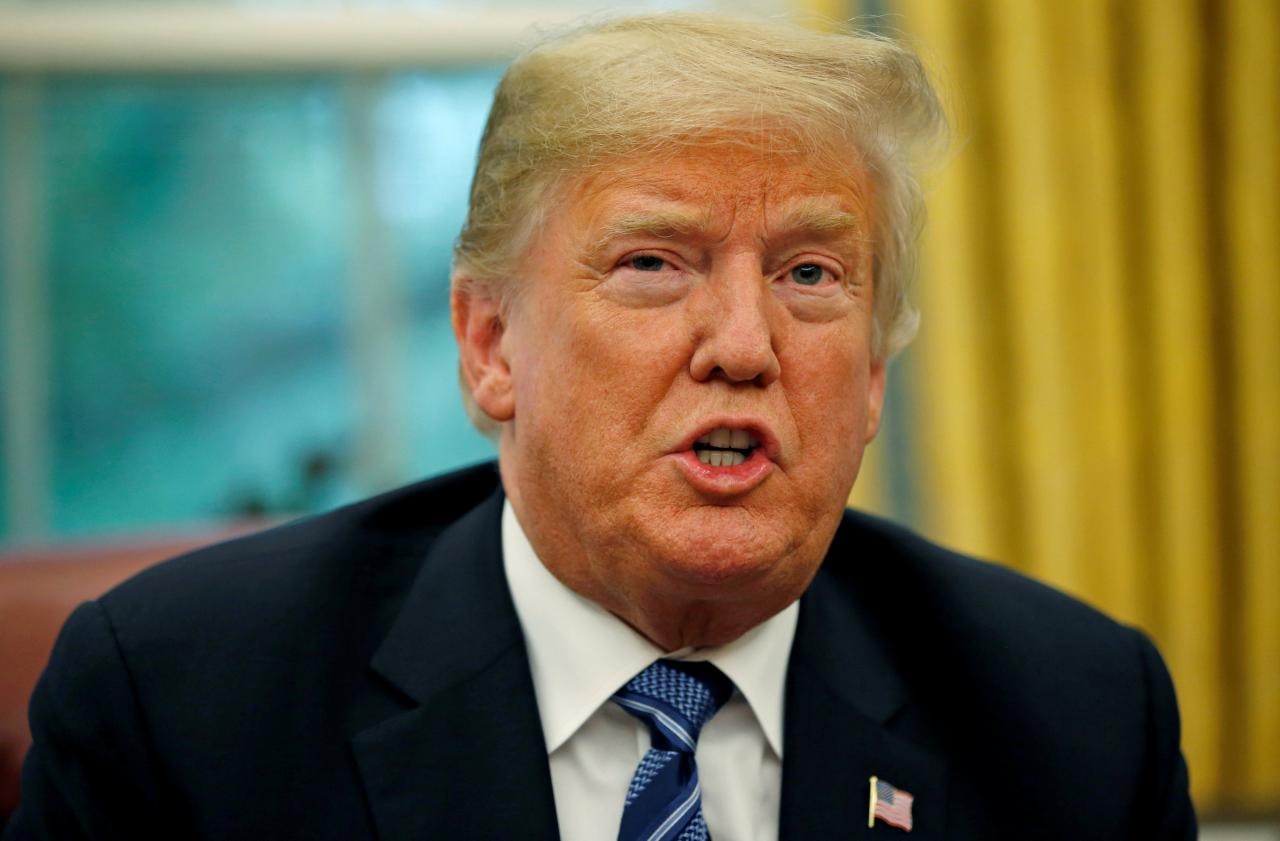Trump signs executive order authorizing sanctions for interference in US elections
(Baonghean.vn) - Under criticism for his handling of the suspicion of Russian election interference, US President Donald Trump on September 12 signed an executive order to strengthen election security by using sanctions against foreign countries or entities that seek to interfere in the US political process.
 |
| US President Donald Trump holds a meeting in the Oval Office to prepare for Hurricane Florence on September 11. Photo: Reuters |
The order, issued just eight weeks before the US congressional elections on November 6, immediately faced criticism from both Republican and Democratic lawmakers, who considered it too little and too late.
Trump signed the decree without the presence or witness of reporters, which is quite rare compared to his behavior.
this leader's usual.
In a statement, Mr. Trump asserted: “As I have made clear, the United States will not tolerate any form of foreign interference in our elections.”
US National Security Adviser John Bolton told reporters that sanctions could include freezing assets, restricting foreign exchange transactions, limiting access to US financial institutions, and prohibiting US citizens from investing in related companies.
Bolton asserted that sanctions could be imposed during or after an election, based on evidence gathered.
US intelligence agencies have concluded that Kremlin-backed entities sought to boost Republican Trump’s chances of winning the White House in the 2016 election against Democratic rival Hillary Clinton. But in July, Mr. Trump publicly accepted Russian President Vladimir Putin’s denials at a joint press conference after their summit in Helsinki, Finland.
Special Counsel Robert Mueller and congressional panels are investigating alleged Russian interference in the US election, which Moscow denies. Mueller is also looking into possible collusion between the Trump campaign and Russian officials. Trump has denounced the investigations as a political “witch hunt.”
US lawmakers say the executive order, which would give the president the power to decide whether to impose sanctions, is not enough.
“Today’s announcement by the administration recognizes the threat, but does not go far enough to address it,” Republican Senator Marco Rubio and Democratic Senator Chris Van Hollen said in a joint statement supporting the rule.
Automatic punishment
The order represents an effort by the US administration to appear tough on election security ahead of November's vote, which will determine whether Trump's Republican Party maintains its majorities in the US House of Representatives and Senate.
Bolton asserted that criticism of President Trump's response to the issue, including his controversial comments in Helsinki and numerous Twitter posts, played “zero” role in pushing for the executive order.
“The president has said repeatedly that he is determined there will be no foreign interference in our political process. I think his actions speak for themselves,” Bolton said.
The order will direct intelligence agencies to assess whether any person or entity has interfered, said Dan Coats, director of national intelligence. That information will be passed to the Justice and Homeland Security departments, which will then, based on their assessment of the effectiveness and impact, trigger automatic sanctions.
Coats told reporters that the intelligence agencies would have 45 days to conduct their assessments. The two departments would then have 45 days to determine whether action was necessary.
The Departments of State and Treasury will determine what additional sanctions to recommend and impose.
Bolton said the order was necessary to ensure a formal process and authorize sanctions. He revealed that he was in the process of talking to lawmakers about possible regulations.
“Unfortunately, President Trump has demonstrated in Helsinki and elsewhere that he simply cannot be trusted to stand up to Putin when needed,” said Senator Mark Warner, a Republican who serves as vice chairman of the Intelligence Committee.
“While the administration has not shared the full text, an executive order that would certainly give the President broad discretion to decide whether to impose tough sanctions on those who attack our democracy is not enough.”
Meanwhile, Mr. Coats said that this measure was introduced as part of the US government's efforts to detect any suspicious behavior between now and the November elections and to conduct a full assessment after the election to impose sanctions if necessary.
Coats said the United States had seen signs of election interference from Russia and China, and the possibility of similar interference from Iran and North Korea. “It’s not just Russia we’re looking at,” he said.
US lawmakers have proposed a number of Russia-related regulations, urging sanctions for election interference.
The US Congress passed a bill imposing sanctions on Russia more than a year ago. Some lawmakers have expressed frustration with what they see as the US government’s reluctance to enforce the law.
Mr. Trump signed the bill into law only after Congress passed it with an overwhelming majority. Based on this law, the US Treasury Department imposed sanctions on 24 Russian nationals, targeting Putin's allies.

